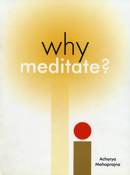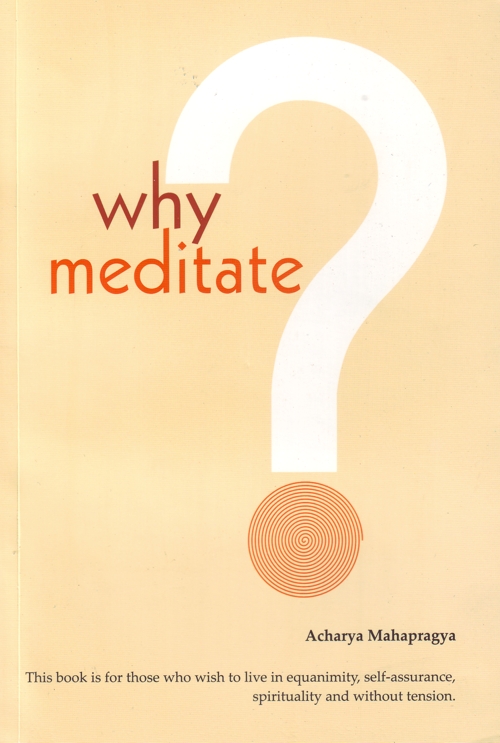

The emotion should not be so uncontrollable that neither can anyone live with you and nor can you live with anyone. Neither can you work with others, nor can anyone else work with you. If emotions are uncontrolled, how can a person execute his work efficiently? Establish such good relations that you can work with others, and others can work with you happily. If this happens, there will not be any problems. The kingdom of emotions is very vast. Let us focus on essential points. The first point is development of the power of tolerance. How much can a man tolerate? A person who tolerates, is an efficient person in the real sense, and only he can take others along with him. Similarly, a person who is intolerant can neither work along with others nor can take others along with him.
While deliberating on the importance of organization, Acharya Tulsi said, “People imagine the Acharya to be the supreme authority of the organization. It is true but if we view from another perspective, the Acharya has to tolerate far more than any one else. A proficient Acharya is one who possesses competence, love and equanimity. Only that Acharya is considered, an adept who has developed tolerance, has tender, affectionate and motherly feelings and is free from bias.”
The essential requirement for working efficiency is tolerance. One who cannot tolerate his colleagues and subordinates cannot be an efficient person. Tolerance is an essential requirement for us. In Preksha Meditation Camp, the contemplation to develop tolerance power is practiced. Through contemplation and autosuggestions, we can develop the power of tolerance. Some people naturally have the power to tolerate, but others who do not have this can develop it through practice. It may not be possible to develop tolerance during a ten-day-camp, but with constant practice of contemplation for two to three months, there is a possibility that his tolerance will increase. After six months of practice, his desire to develop tolerance will definitely be fulfilled.
Bhagwan Mahaveer took initiation. How did such detachment and dispassion spring up in him? Six months prior to his initiation, Prince Vardhaman had been practicing the contemplation of transience. This trait therefore ripened. A person who regularly practices the contemplation of transience will find his infatuation towards the material world falling off and his interest towards asceticism developing. Qualities can be enhanced by practice. The soil of our internal world is very fertile. If proper practice is done, the quality of tolerance grows eventually. A person who has learnt to tolerate is, in the true sense, proficient. A person should know when and what to speak. If the junior worker is in an aggressive mood, it is the duty of the senior to tolerate him. Instead, if he fights back, that simply worsens the situation. At that time, silence will lead him to success. If he is not tolerant, but reacts immediately, the situation will worsen.
I have seen a family. The head of the family was short-tempered. Even his servant was like him. Whenever we used to pass by, we could hear them fighting. One day, I told that owner, “You fight a lot. It is not good. Even we could hear it, at our place.” He responded, “Maharaj! The truth is that both of us are aggressive.”
“Then why do you live together?”
“I cannot live without him. Even he cannot work without me.”
“If you both are interdependent, then why don't you practice tolerance?”
Without practice, there is no progress. Transformation takes place only by practice, and not through mere talk. Without change, there cannot be any efficiency at work. To improve working efficiency, the power of tolerance has to be enhanced. Let us develop the power of tolerance.
The second quality that should be developed is a conciliatory approach. To fit two shutters, we need a conciliatory approach. Once a carpenter was trying to fit a shutter in the room where I used to sit. He brought shutters of different sizes but nothing fitted. After cutting and joining for many days, he finally succeeded in fitting the shutters. I realized that even to adjust two non-living things, so many alterations are required. Then just how difficult it must be to keep living beings together? Unless and until we make adjustments, reconciliation is not possible. If we know the art of reconciliation, we can live with two, or even a hundred people, without any problem. One of the most important methods to balance our emotions is the establishment of a conciliatory approach.
Another requirement of working efficiency is concentration. In the absence of concentration, one cannot be proficient. A scientist wrote about 900 papers in his lifetime. They were all considered to be very important but he did not complete any one of them. A comment was made that if he had completed even a single paper, he would have been considered one of the world's greatest scientists. It was tragic that he could not complete even one paper and all were left incomplete. This problem persists among many people. Some say that they will run a certain business today, and they change it after ten days. Then, again, they change their business to a third kind, and so on - that is why they are unsuccessful. Without deep concentration and focus on one's destination, efficiency cannot be achieved. Being centred on one thing leads us towards destination.
The question arises - “How do we concentrate? And how do we increase our one-pointedness?” In Preksha Meditation, the art of concentration is developed by the practice of the most effective technique of long breathing. This technique is very important for increasing concentration, but it should be followed methodically. After attending a camp we must measure how much our concentration has increased, how long we can stay on one thought. As one attends camp after camp, with the persistent practice of long breathing, concentration should be measured. It should not be worthless practice, like that man who ground tons of wheat but could not find anything left for him - because he did not notice the dog eating the wheat from the other side. The man had the attitude, “I have ground as much wheat as I needed. What is the need for me to get up and check, every now and then, where the ground wheat is going?” There should be a constant process of inspection, getting a bird's eye-view and retrospection. We must look back to see what the results are. Our attempt should have been fruitful. Mere attempts are worthless until the result comes in front of us. To what extent have our concentration and staying power on one thought increased? It should not be like what is happening in the political field, where during the time of election, politicians make empty promises, that when they come to power, they will eradicate poverty. We have been listening to this for more than 50 years, but poverty still exists. The reason for this is lack of concentration. If we take one problem at a time and concentrate on it for few months, we are sure to reach a solution. Today we try to solve a problem, tomorrow we try another problem and then, yet another one. If we keep on in this manner, moving from one problem to another, we will never reach a solution.
 Acharya Mahaprajna
Acharya Mahaprajna
 Copyright by Acharya Mahaprajna ©2005
Copyright by Acharya Mahaprajna ©2005